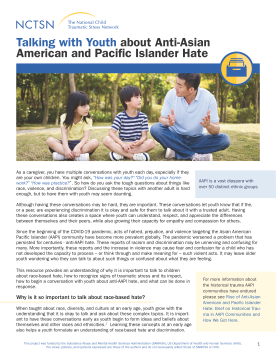
NCTSN Resources
The following resources on Race-Based Trauma were developed by the NCTSN.

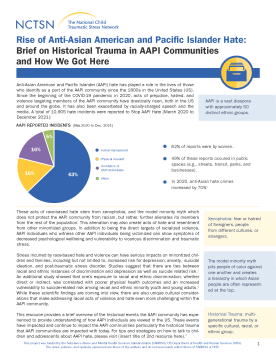
Rise of Anti-Asian American and Pacific Islander Hate: Brief on Historical Trauma in AAPI...
Provides information pertaining to the history of anti-Asian American and Pacific Islander (AAPI) hate. This resource explores the historical trauma caused by these events, leading up to the rise of anti-AAPI hate statistics that increased at the beginning of COVID-19.
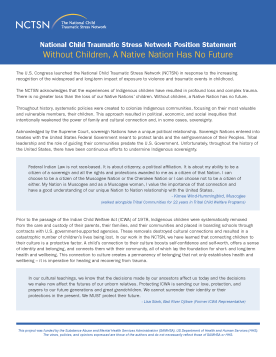
Without Children, A Native Nation Has No Future: NCTSN Position Statement
Acknowledges that the experiences of Indigenous children have resulted in profound loss and complex trauma. Prior to the passage of the Indian Child Welfare Act (ICWA) of 1978, Indigenous children were systematically removed from the care and custody of their parents, their families, and their communities.
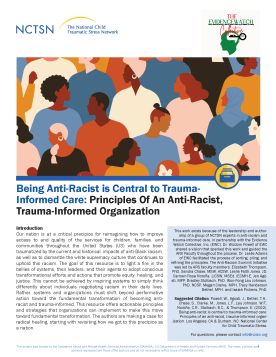
Being Anti-Racist is Central to Trauma-Informed Care: Principles of an Anti-Racist, Trauma...
Systems and organizations must shift beyond performative action toward becoming antiracist and trauma-informed. This resource offers actionable principles and strategies that organizations can implement...
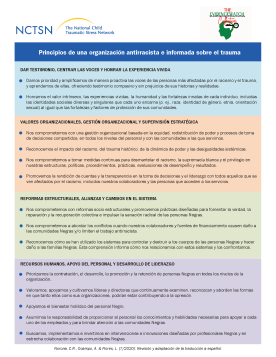
Principios de una organización antirracista e informada sobre el trauma
Este recurso ofrece principios prácticos y accionables que organizaciones y sistemas de servicios para niños puedan implementar en sus continuos esfuerzos para transformarse fundamentalmente en entidades antirracistas e informadas sobre el trauma.
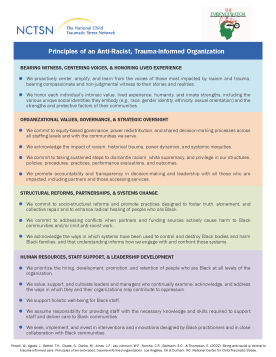
Principles of an Anti-Racist, Trauma-Informed Organization
Offers actionable principles that organizations and child-serving systems can implement to move toward the fundamental transformation of becoming anti-racist and trauma-informed.
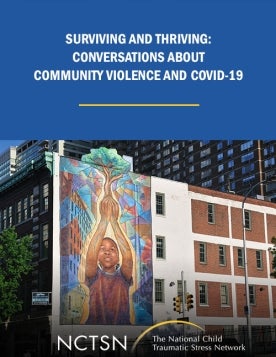
Surviving and Thriving: White Supremacy Resurgences and Cultural Healing Responses for Asian,...
Addresses how "White supremacy" culture has systematically served as the formation, foundation, and expression of institutional racism throughout U.S. history by employing institutional policies...
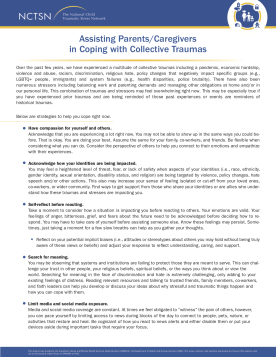
Assisting Parents and Caregivers in Coping with Collective Traumas
Offers strategies to help parents and caregivers cope with collective traumas. This fact sheet also provides guidance on what parents and caregivers can do to care for their children as they cope. Updated May 2024.
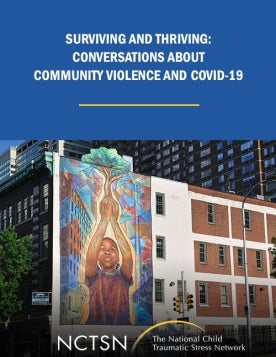
Youth Responses to Complex Harm and Collective Healing When Coping with Community Violence
Explores how young people respond to community violence and the lasting effects of marginalization and hate-based trauma. This webinar discusses creative strategies to help youth process these challenges and build resilience.
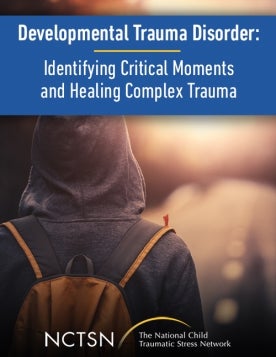
Mental Health, Racial Trauma, and Health Inequities Confronting Boys and Men of Color
Features Dr. Wizdom Powell, who has worked to advance health equity for boys and men of color.
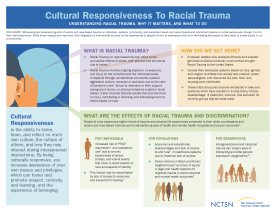
Cultural Responsiveness To Racial Trauma
Offers mental health providers information on understanding cultural responsiveness to racial trauma, why it matters, and what to do.
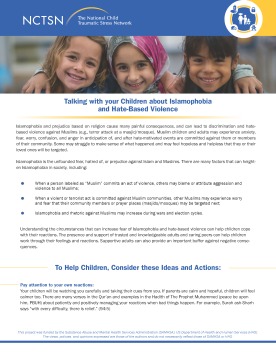
Talking with your Children about Islamophobia and Hate-Based Violence
Discusses Islamophobia and hate-based violence against Muslims, highlights strategies that parents and caregivers can usd to facilitate effective conversations, offers age-specific guidelines, and provides actions families and communities can take before an event occurs.